The Daily Agenda: Shady money rolls into Tucson's elections
The big spenders in Tucson's election aren't from Tucson ... Rent control has a target on its back ... "Rodent Academy" is in session.
The deluge of outside money into Tucson’s mayoral and city council elections is underway.
Some of it’s really shady, like the group that paid for mailers attacking Ward 1 candidate Lane Santa Cruz without filing any paperwork with the City Clerk’s Office.
Some of it’s just kind of shady. Even with the $209,000 in spending where we do have paperwork, virtually none of it came from Tucson. These out-of-town “independent expenditures,” as this type of spending is known, strike us as still a little suspect. Legal, yes. Commonplace, sure. But when organizations from other cities or states try to influence local elections, we have to wonder what their interests are.
Take the $86,000 two real estate organizations spent backing Democrat Lisa Nutt’s primary challenge to Paul Cunningham in Ward 2. The Phoenix-based Arizona Multihousing Association spent $51,100 and the Chicago-based National Association of Realtors spent $35,200 on digital ads, text messages, and mailers to support Nutt.
That’s more than 10 times the $7,870 Nutt was able to raise for her campaign as of two months ago.
Nutt works in real estate, so maybe she has the most supportive co-workers on the planet. Or maybe those real estate organizations have their own agenda.
Spoiler alert: It’s fighting rent control.
“Preserve the statewide prohibition on rent control” is the number one goal of the Arizona Multihousing Association’s “2023 Public Policy Agenda.”
As for the blatantly shady spending, a group that calls itself the Arizona Prosperity Initiative PAC paid for mailers attacking Santa Cruz. We’d never heard of them and we don’t know how much they spent on the mailers. We weren’t the only ones left wondering who they were.
“(T)he city of Tucson has no record of this political action committee registering with the city as required, or of being sent notice of this expenditure as required. In addition, Santa Cruz said she did not receive a copy of the mailer in advance, an additional requirement,” the Arizona Daily Star’s Tim Steller wrote on Friday.
We found a non-profit created in April under the name Arizona Prosperity Initiative by Tim La Sota, a lawyer from Phoenix who represented Kari Lake in her bogus election fraud campaign. La Sota has represented a cast of election deniers, and was was the Cochise County Board of Supervisors’ top pick to represent them in an election lawsuit.
We reached out to La Sota, but he didn’t respond. He also gave the cold shoulder to Jim Nintzel at the Tucson Sentinel. Santa Cruz’s challenger, Miguel Ortega, told Nintzel he didn’t know La Sota and he “didn’t support Trump policies.”
Candidates aren’t allowed to coordinate with independent expenditure campaigns, (including by telling them that their support isn’t wanted). But the fact that La Sota is in his corner is certainly not helpful in a Democratic primary.
“He said the third-party mailers were ‘indicative of the interest in the race. It's the only one that's really competitive in town. It's the race to watch,’” Nintzel reported.
Mayor Regina Romero and Santa Cruz got outside backing from groups they’ve openly allied with over the years.
Romero’s re-election bid got a $76,000 boost from Living United for Change in Arizona, based in Phoenix. LUCHA paid to canvass for her and to provide technical assistance. LUCHA describes itself as an organization “led by changemakers fighting for social, racial, and economic transformation.”
Santa Cruz was backed by the Mijente AZ PAC, based in Phoenix and Los Angeles. They spent about $30,600 to buy mailers and for staff time in support of Santa Cruz. The mailers say none of the funding came from out-of-state. Mijente describe themselves as being a “political home for Latinx and Chicanx people who seek racial, economic, gender and climate justice.”
The WFP National PAC paid $16,600 for mailers in support of Santa Cruz. They are part of the Brooklyn-based Working Families Party, which says “the richest people on Earth—and the political insiders who serve them—have rigged the rules of democracy to grab up wealth and power for themselves.” They list Santa Cruz and Romero among “our candidates.”
That’s what we know so far about outside money flowing into Tucson’s elections.
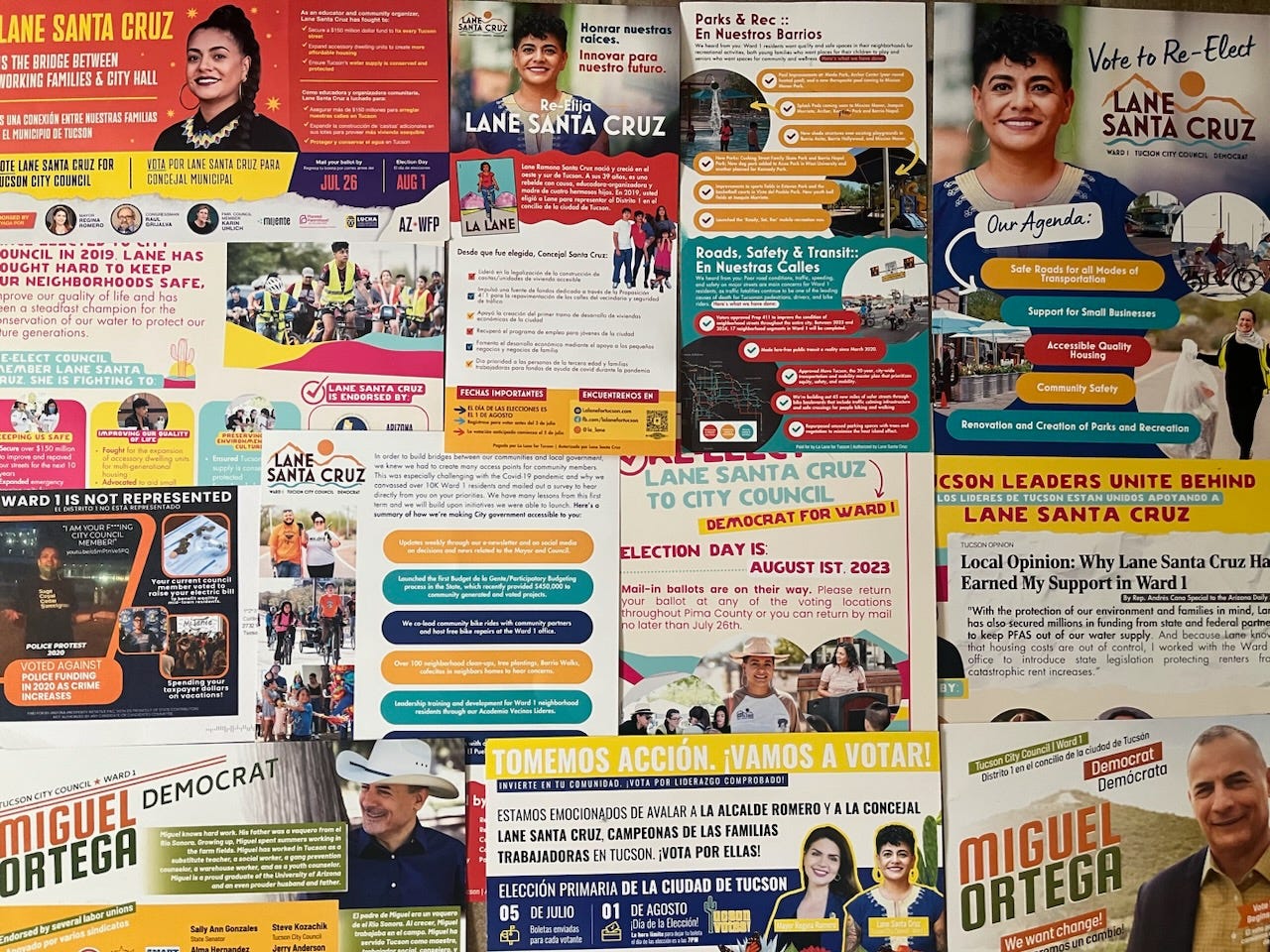
We should have a much clearer view of the overall money picture soon. Today is the deadline for candidates to file campaign finance reports for the first time in months.
But time is running out. Voters returned 22,729 ballots as of Friday, according to the City Clerk’s Office. That’s already more than the 22,758 who voted in the 2021 primary election for city council and it’s about one-third of the 62,600 votes in the 2019 primary, which included the last mayoral race.
They got the signatures: Voters in the Douglas area created an active management area for water last year, the first time local voters had ever done it in Arizona. But not everybody was pleased. Organizers of an effort to repeal it gathered enough signatures to put the repeal on the ballot in November, Beau Hodai reports for Cochise Regional News. Hodai, a longtime reporter in Arizona, launched his Substack newsletter last week.
Rodent resolution: With a growing rodent problem in the Sam Hughes neighborhood that experts say has the potential to become citywide, a University of Arizona entomologist hosted a “Rodent Academy” class for dozens of local residents, the Tucson Sentinel’s Daniel Shailer reports. Many questions were left unanswered and there was no clear solution, but the UA’s Dr. Dawn H. Gouge told the group the best response to rats is preventative.
“At some point, you're in an environment where they are living and sustaining themselves. You can choose to be in that environment and keep them outside your home fairly successfully,” Gouge said.
Mining projects hit a snag: The Center for Biological Diversity and other conservation groups are seeking a court order to stop two mineral exploration projects in the Patagonia Mountains, according to Arizona Public Media’s Katya Mendoza. The group’s Friday filing of a preliminary injunction follows the filing of a June lawsuit against the U.S. Forest Service over its approval of the projects, which could lead to continuous drilling in an area already deemed biologically sensitive.
Maybe we need that shortfall: Tucson will likely find itself in a better position water-wise than Pinal County or Phoenix’s Active Management Area, but that isn’t necessarily good news, according to the Arizona Daily Star’s Tim Steller. While Tucson’s AMA might have enough supply for groundwater-dependent housing developments, the supply of Colorado River water that will help justify the finding could be cut in half as the warming climate dries up the river.
Tentative budget moves forward: The Santa Cruz County Board of Supervisors approved a tentative budget for the new fiscal year, with an increase in general fund spending and a reduction on property taxes, according to the Nogales International’s Angela Gervasi. The budget would increase the general fund from $40 million to roughly $42.2 million and the property tax rate would drop from about $4.05 to $4.02 per $100 of assessed property value.
The Tucson Agenda could become sustainable for years with a fraction of Santa Cruz County’s budget. If you’ve enjoyed reading our newsletter, please help us stick around!
Another hotel conversion: The City of Tucson plans to turn a blighted hotel on the east side into a shelter for families who have been evicted, according to the Sentinel’s Natalie Robbins. The city will move operations of an existing shelter into the Knights Inn once negotiations for the $4.3 million purchase — which will be made using a combination of public funds — is finalized. Caitlin wrote about the Knights Inn for the Star in 2021, when it was an active project in the Tucson Police Department’s COMPSTAT 360 program, which takes a holistic approach to crime prevention.
We launched the Tucson Agenda with a story about overcrowding at Pima Animal Care Center leading up to the Fourth of July holiday and the busiest intake week of the year.
PACC’s post-holiday intake numbers for this year show it was another hectic week for them, with 262 dogs and 175 cats coming into the shelter between July 5 and 12. The shelter also took in 76 dogs on July 13 – nearly half of them strays.




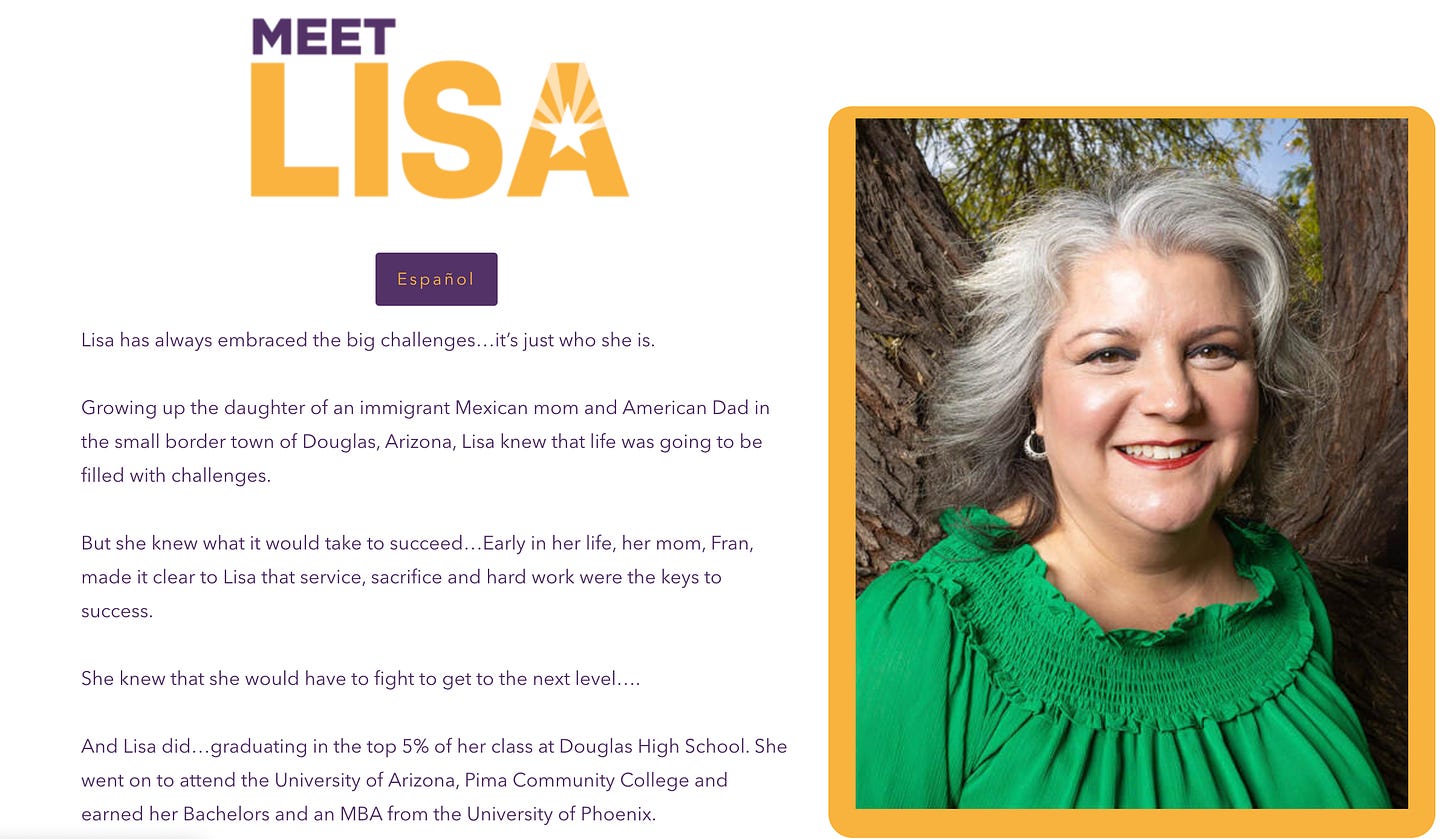
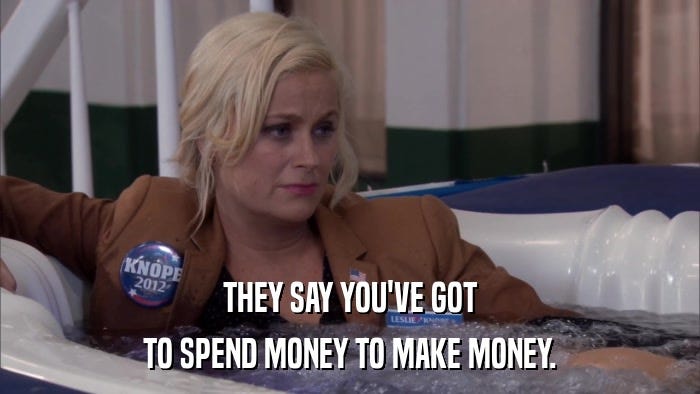

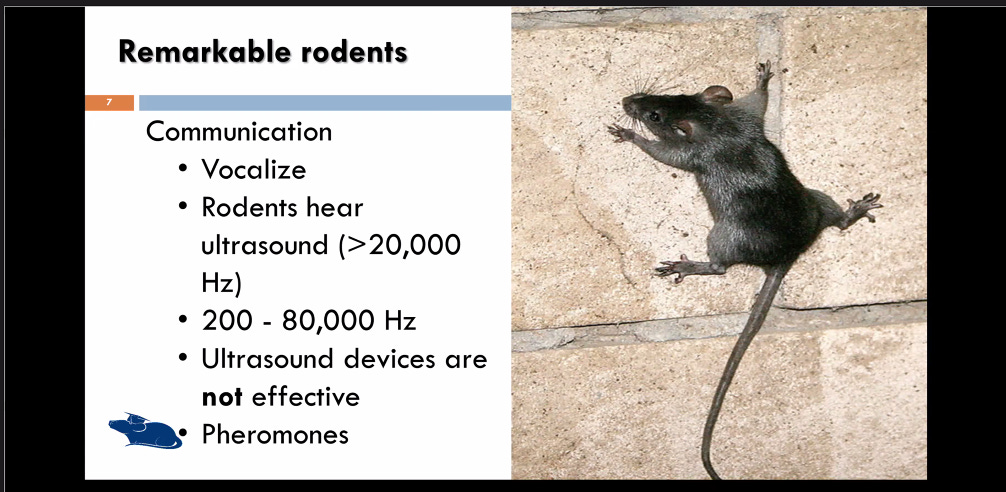
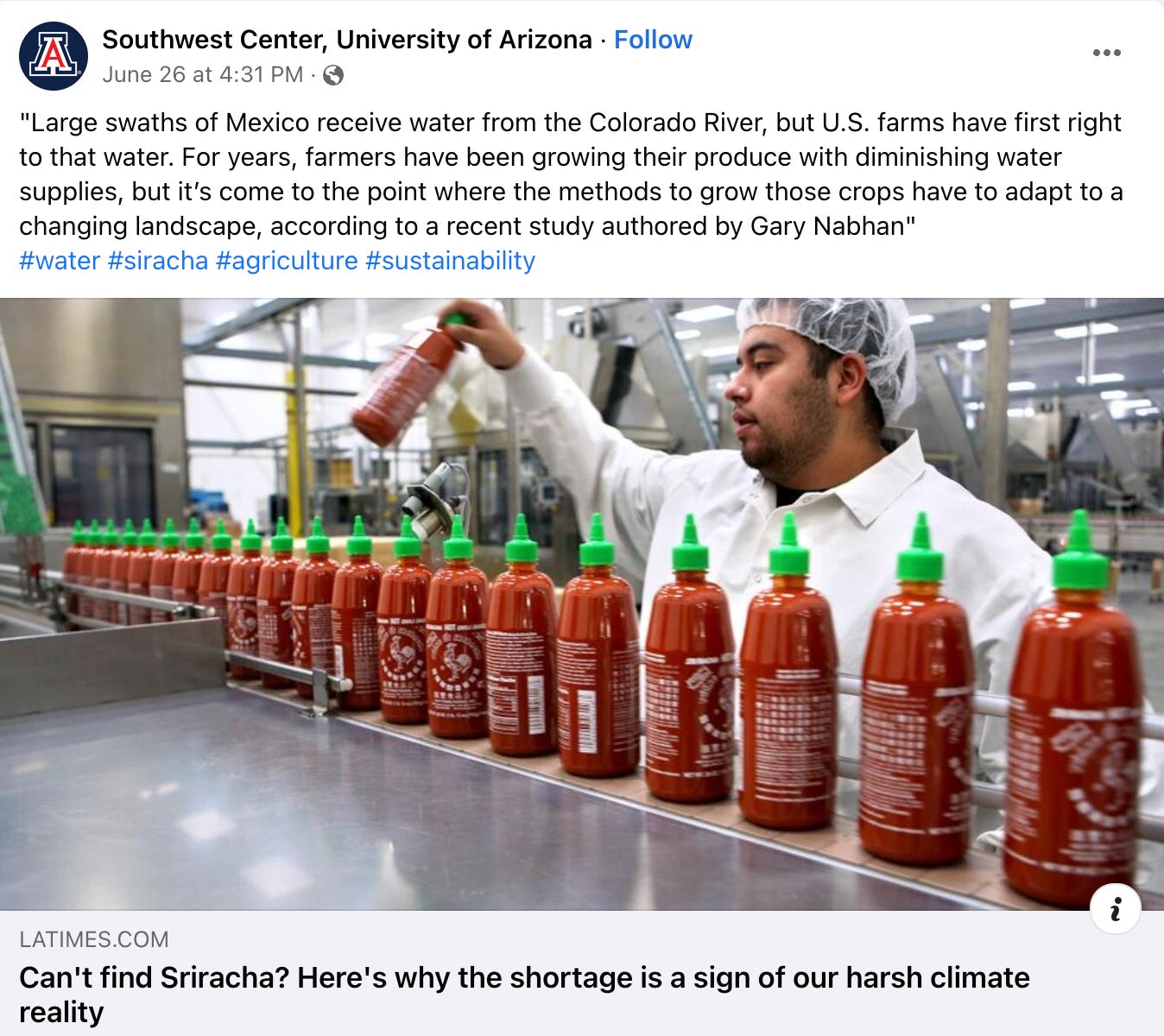

This issue is the best yet. Content is informative without being longer than necessary. I'm still cautious about Curt's early time in his last job at the Star where we had some borderline false equivalencies and both-sidesism. While I'll be on the lookout for this and call attention if it seems detrimental to honest reporting, I haven't seen it yet.
Just read the Tucson agenda this morning about the out of state funding mailers being sent to Tucson voters about city council candidates and mayor. Do you know if this money is supposed to comply with the AZ dark money law? Or are city council and other local races exempt?